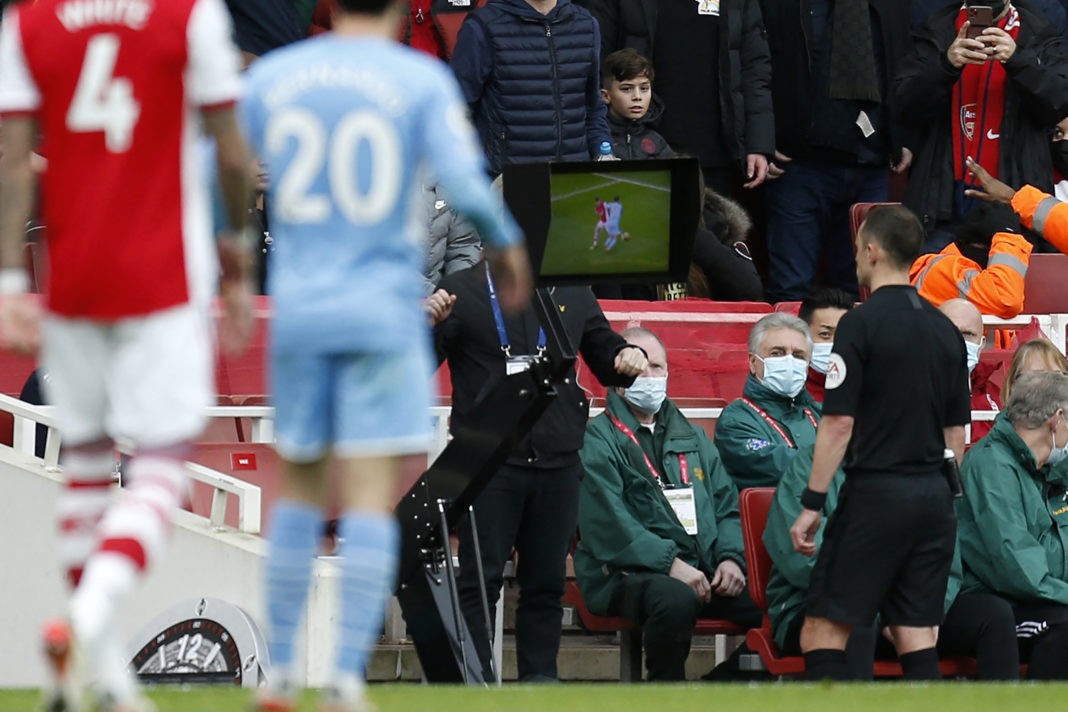Arsenal became the first side the in the Premier League era to reach 100 red cards when Gabriel was sent off against Manchester City on New Year’s Day, but how can that be when they’ve been largely criticised for being too soft?
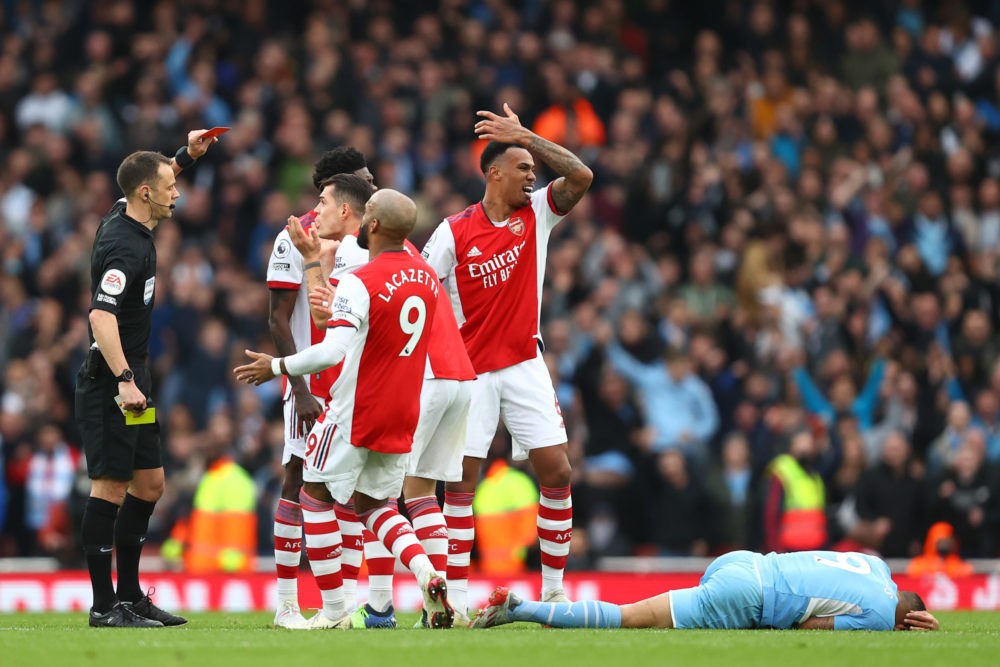
Arsenal and red cards have been a regular talking point for two decades now.
While we watch, week after week, leg-breaking challenges go unpunished against Arsenal players, wearing a red and white shirt seems almost like an invitation to presume the worst.
Most Arsenal fans will be aware of the relentless media coverage, particularly in the latter days of Arsene Wenger’s reign, that bleated on about how the team had no bottle, no spirit, no fight – English media speak for ‘they don’t kick people enough’.
How, then, can they be both the softest touch in the league yet also the one with the worst red card record?
Sure, Arsenal players have a long history of making stupid fouls, but are we really going to sit here in the cold light of day and argue that Arsenal are 31 red cards worse than Manchester United who have collected 69 in the same period?
Tottenham Hotspur, whom we all know to be a snide little kickfest of a club, have only had 70.
Chelsea? 82.
Liverpool? 60.
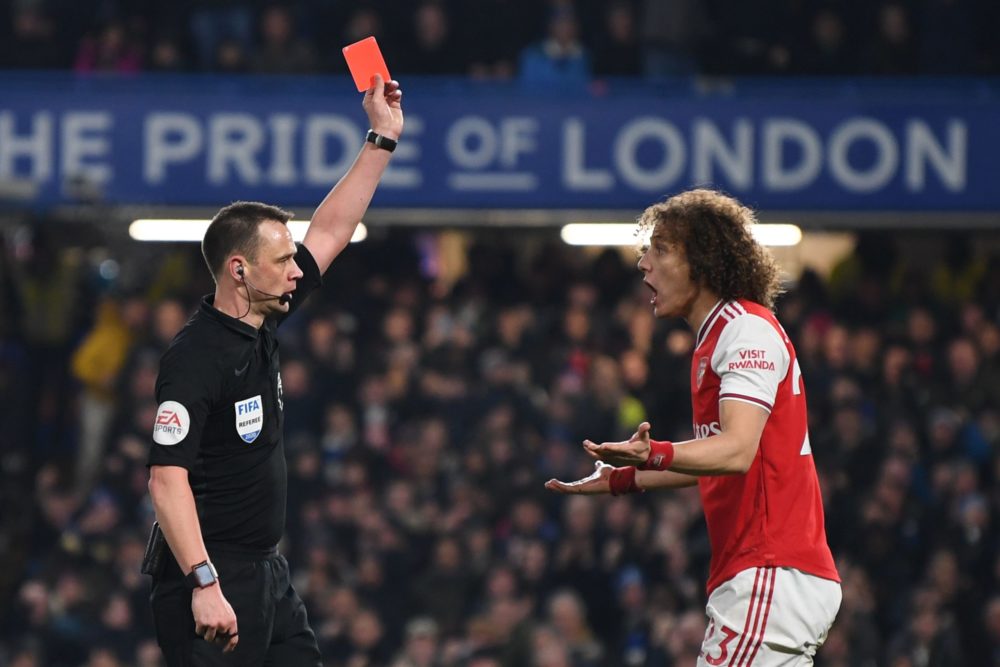
The closest side to Arsenal are Everton, widely regarded as one of the hardest, most cynical teams in the league.
They sit on 99.
A few years ago, tired of assuming Arsenal were being treated more harshly by referees than other sides, I started tracking cards per foul.
Of course, this is not a perfect metric, and it does not tell us of the nature of the fouls being booked, but it was telling nonetheless.
One season, Arsenal were getting booked approximately every four fouls while Liverpool and Leicester needed nine or 10 to pick up a yellow.
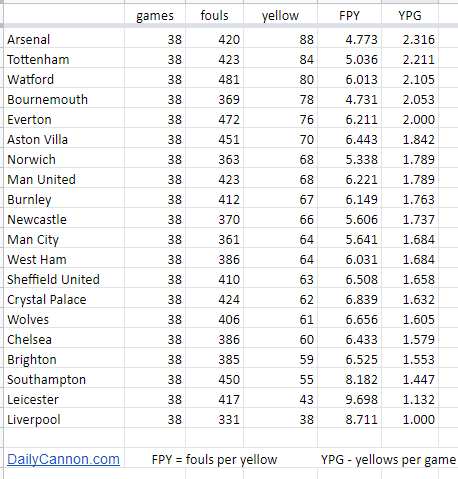
That can’t be right.
In fact, clubs from the south of England seem to do particularly badly under a group of Select refs who almost exclusively hail from the north of England.
This matters.
With the ‘southern softies’ narrative, referees are much more likely to assume Arsenal are being petulant.
They get less protection because refs assume they are being soft little babies, crying to get attention, whereas when a big hulking player from Leeds or Manchester goes down, well, that Arsenal player must have done something really bad.
It sounds stupid, but it’s how humans work, and refs, despite what they like to think about themselves, are exactly that – human.
They are as influenced by the narratives constructed in the media as anyone else.
Where referees are from vs where football clubs are located
yellow = ref, red = club pic.twitter.com/cFmti1TFHd
— Daily Cannon (@DailyCannon) January 2, 2022
Let’s take that table above and organise it by the number of fouls you need to get a yellow:
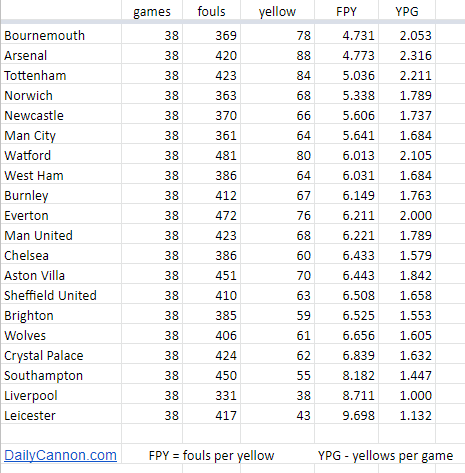
Five of the top eight in that table are what you could class as ‘southern clubs’ but only three of the bottom eight.
Quite how Chelsea get away with what they do on the pitch without being punished like they’re Arsenal is the multi-million pound question.
Ok, that’s two years ago I hear you say, so what about this season?
Arsenal have been penalised by refs for a foul 167 times this season, placing them, hilariously, fourth.
They have been awarded 189 free kicks, a number that is artificially low as we saw against City. Despite Rodri performing the role of one man wrecking crew, Arsenal were awarded just three free kicks in the first 80 minutes of the game.
This on Gabriel Martinelli wasn’t even deemed a free-kick:
Not even a free kick https://t.co/sELOqGT6U3
— Daily Cannon (@DailyCannon) January 1, 2022
Not a foul pic.twitter.com/yrTqJgeV89
— Daily Cannon (@DailyCannon) January 1, 2022
Yellow cards matter, too, as we saw against Manchester City.
If Stuart Attwell hadn’t booked Gabriel for daring to speak to him, then he wouldn’t have been sent off when he pulled down Gabriel Jesus later.
Being booked limits what a player can do on a pitch.
No card means they can continue fouling and are less likely to be sent off for making a mistake.
They matter.
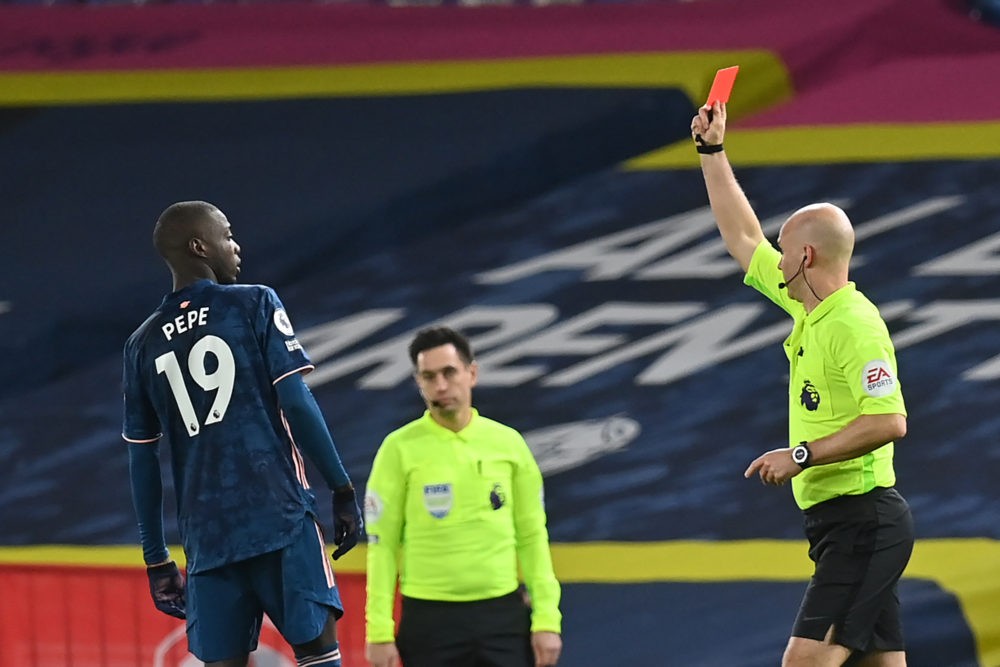
At what point does it become acceptable for the club to start asking questions and for them to actually stand up to officials who can make a game or player’s career yet are held accountable by no-one as they run their own little dictatorship?
After the game against City, we saw a united approach from Arsenal.
Players and assistant manager alike sung from the same hymn sheet, choosing their words very carefully, a call for ‘consistency’ rather than fairness, which would be a more accurate reflection of what we all want.
We just want football to be fair, as much as it can be.
Sure, mistakes will happen, and fans get that.
But when you only use the tools to help one side while refusing to for the other, or you hold one side to higher standards on the pitch than their opponents, that’s the very definition of unfair, and it’s about time something was done about it.

